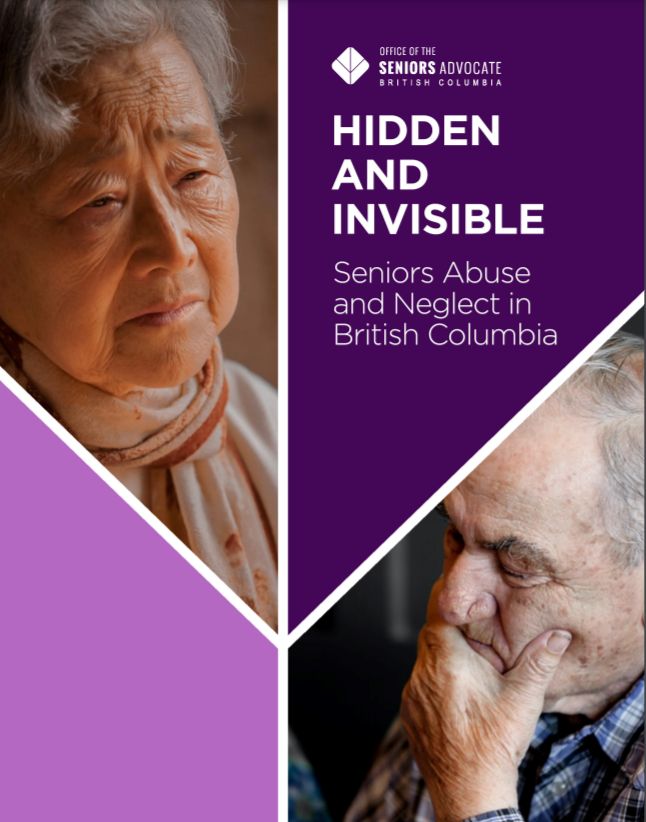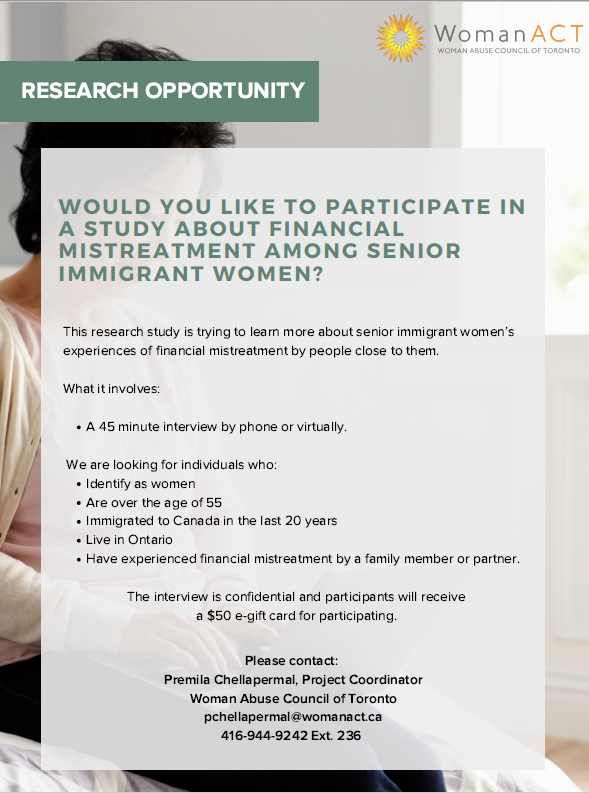Blog
- Details
How we think about aging today will define our future. When we let ageism shape our thoughts, behaviours and policies, we harm older Canadians today, and we also impact the lives that we hope to live as we age.
Elder Abuse Prevention Ontario, in collaboration with CNPEA and the Center for Research and Education on Violence Against Women and Children (CREVAWC), developed two short animated videos to encourage people of all ages to respect and defend the rights of older adults, and to highlight the power of collaboration when supporting older adult victims of abuse.
The first video, The Future You, encourages Canadians to recognize ageism, and to think about the kind of future we want. We hope it will empower Canadians to stand up for seniors' rights, and to push back against ageist prejudice and discrimination.
The second video, Silence Is Not Golden, is a reminder that ageism can easily lead to mistreatment. The video aims to dispel myths associated with victimization and encourages victims and people at risk to seek support within their communities.
These videos are available in French and in English. They were funded by the Department of Justice Canada for Victims and Survivors of Crime Week 2021.
The Future You
Silence Is Not Golden
- Details
By Krista James, Canadian Centre for Elder Law
 On December 8, the BC Seniors Advocate released a systemic review of elder abuse and neglect in British Columbia. The report Hidden and Invisible indicates elder abuse is on the rise. It draws a parallel with child abuse, finding BC’s policy regime deficient partly due to the lack of a centralized elder abuse reporting line. Media coverage has emphasized this clarion call to develop a single point of contact for reporting elder abuse and neglect in BC.
On December 8, the BC Seniors Advocate released a systemic review of elder abuse and neglect in British Columbia. The report Hidden and Invisible indicates elder abuse is on the rise. It draws a parallel with child abuse, finding BC’s policy regime deficient partly due to the lack of a centralized elder abuse reporting line. Media coverage has emphasized this clarion call to develop a single point of contact for reporting elder abuse and neglect in BC.
The problem with this messaging is that older people are not children. Consequently, they are entitled to both privacy and respect for their decision-making autonomy.
- Details
In July 2019, the Government of Alberta released Addressing Elder Abuse: A Toolkit for Developing a Coordinated Community Response to help communities develop a framework to address elder abuse at the local level.
A CCR model involves a group of organizations and/or service providers working together to achieve common goals related to addressing elder abuse. These may include coordinating services for those affected by elder abuse, effective prevention strategies, and increased safety and security of older people in Alberta. By developing and implementing CCR models that are rooted in collaborative partnerships, communities can leverage the knowledge, services, and expertise of multiple partners, and provide more effective approaches to addressing elder abuse.
- Details
Summary
The Canadian Network for the Prevention of Elder Abuse (CNPEA) is seeking proposals to provide evaluation of its STOP -GBV project, a project focused on enhancing support for older women who experience gender-based violence.
- Details
 RESEARCH PARTICIPANTS NEEDED
RESEARCH PARTICIPANTS NEEDED
The Woman Abuse Council of Toronto (WomanAct) seeks to understand senior immigrant women’s unique experiences of economic abuse and create best practice recommendations for supporting senior immigrant women at risk of economic abuse in Toronto.
WomanACT is seeking participants who.
- Identify as women
- Are over 55 years of age
-
- Have immigrated to Canada in the past 20 years,
- Live in Ontario
- Have experienced economic abuse in a family context
The research is confidential and research participants will be given a $50 e-gift certificate. Interpretation will be available.
Click here to download the poster.
Contact:
Premila Chellapermal, Project Coordinator
Tel: 416-944-9242 Ext 236 or email: .
Page 14 of 55

















